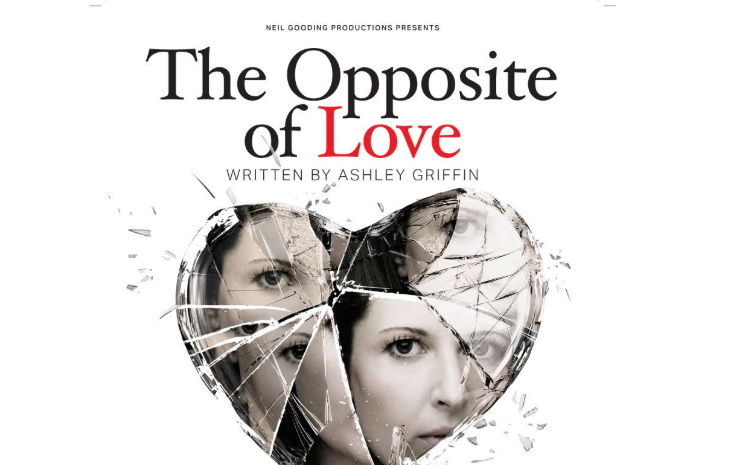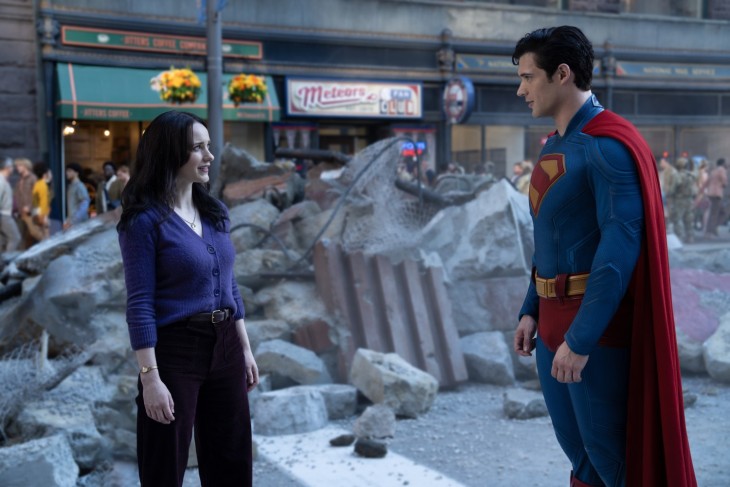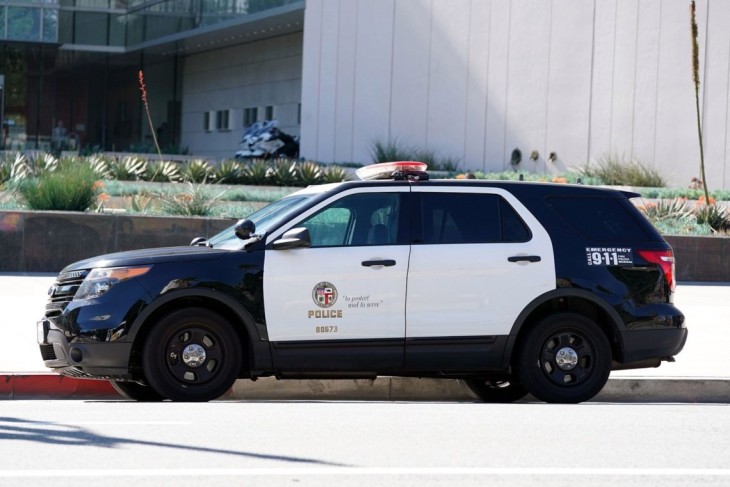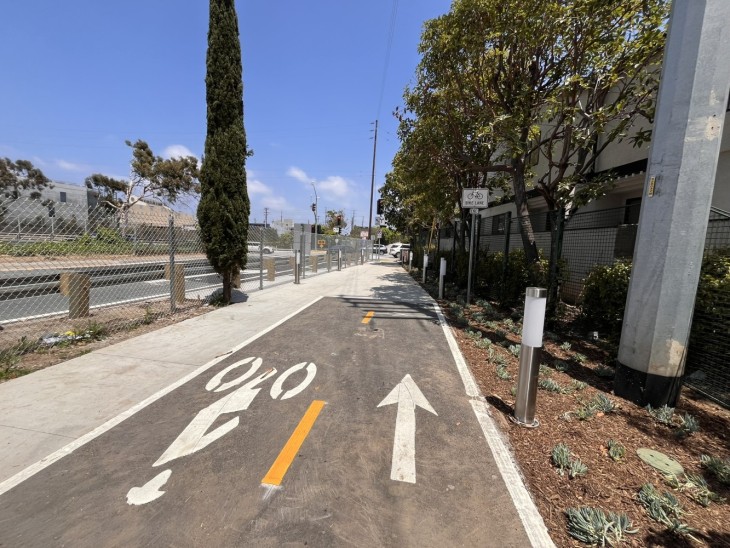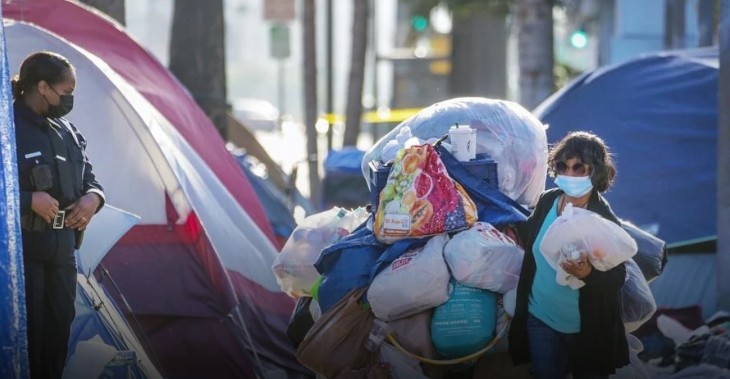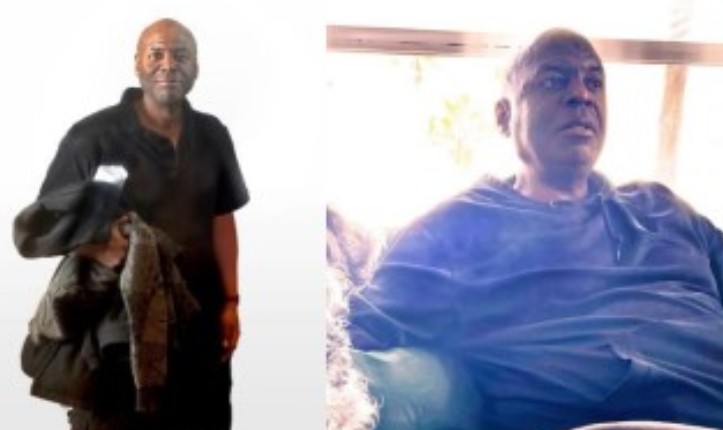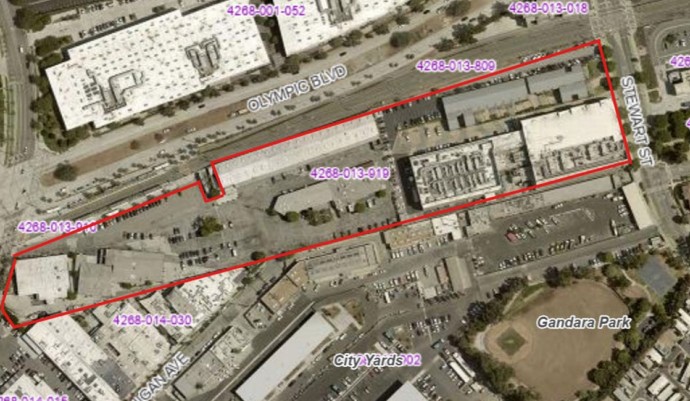Lauren Greenfield is an established photographer and filmmaker and was named one of the 25 most influential photographers by American Photo. Her work was recently exhibited at the Getty Museum and prior to her latest documentary, “The Queen of Versailles,” she won multiple awards for “THIN, kids + money” and “Beauty CULTure.”
“The Queen of Versailles” is the story of a billionaire family’s struggles as their sprawling financial empire collapses and they must make drastic cuts in their opulent lifestyle, going from rags-to-riches and back to their version of “rags.”
The following interview has been edited for content and continuity for print purposes.
What intrigued you about the Jackie and David Siegel story and how did you get access?
Greenfield: I’m a photographer and have been photographing a project about wealth for many years, kind of looking at consumerism. I was interested in the relationship between the American Dream and the house as the ultimate expression of success. I actually met Jackie (Siegel) in Beverly Hills. I was photographing Donatella Versace at a party for a new store and she was one of her best customers at the time. They (the Siegels) were building the biggest house in America (90,000 sq. ft.) and Jackie told me about the house and showed me a photograph of her seven kids on the steps of their private jet. I thought there was something about her, besides this incredible, almost unbelievable, project about building the biggest house in America.
Given the incredibly rarified world in which she lived, what did you find interesting about her?
Greenfield: Jackie was very accessible and down to earth and there was this kind of interesting contradiction. While on one hand she was living in this world of fantasy, on the other hand, she was very down to earth in a kind of very all-American way. We talked about my photographing her and when I went down to Florida and saw both the house they were building, and the house they lived in, and met the kids, I felt like it was a movie.
What struck you as both photographer and filmmaker?
Greenfield: Maybe it was my own naïveté as a photographer, but I liked the setting. I loved the house and I loved the pictorial representations of themselves, both photographic and the paintings they commissioned. There was all this help from different cross-cultural backgrounds, Philippines and South America – and it was kind of an upstairs, downstairs setting. So that was basically how I started. I didn’t even know what David Siegal’s business was. The fact that he was in timeshares and in real estate became of great interest to me after the story turned and really the story didn’t turn until I was pretty far in. It was the middle of 2010 when they had to put their dream house on the market and it was clear that not only was this a different story, but at that point in my photography, I had photographed stories about the crash in other places. I had photographed the Inland Empire, the foreclosure cities there, and had photographed the crash in Dubai. So, when they had to let go of this dream and put the house on the market, I realized that it was a bigger story and that it was an allegory about the over-reaching of America and what happens on so many levels.
How did your background in photography influence your filmmaking?
Greenfield: I think the photography background really helped me with access and the visual approach. That’s the question I’m always asked. How did they let me in? How did I get those pictures? In my photography, I spend long periods of time with people and try to get to know them and try to kind of become part of the fabric. In this story, David and Jackie did have a comfort in front of the camera that actually didn’t go away even when things got very tough. But one thing that helped was being in this 26,000 sq. ft. house where we could kind of be a four-or-five-person crew and still be a fly on the wall, especially because it wasn’t just the size of the house, it was also that they were people who were used to having non-family members walking around the house, so that they didn’t act differently. This is my fourth film, my second feature-length film so I’m relatively new to film. I’ve been doing photography for over 20 years. So, in a way, this is my first film where I was able to realize the kind of aesthetic look and sociological feel of my photography in a film and I think part of it was growing up a little bit as a filmmaker. I worked with a DP (Director of Photography) and also incorporated a lot of my pictures into this. The other part of it is there are a lot of interviews in this movie.
How do you approach interviews?
Greenfield: I approach interviews like an environmental portrait in photography where I’m framing the shot to tell a story about the character and in this film, there’s a real progression in character development. There are five interviews with David and five interviews with Jackie. You see a real physical transformation in their bodies, just in terms of what they’ve gone through, the stress and strain, but also in the composition, there’s a real change. I start the film with a scene where I’m photographing David and Jackie and they’re posing for me so that really speaks to the arc of their relationship. You see them in between the poses and you see their relationship with the camera that is almost like a performance. David is boasting. Jackie is posing and by the end, there’s much greater intimacy; there’s not a sense of posturing. Jackie goes from being made up and camera ready to being barefoot without makeup and in the final scene, I’m filming when she’s having layers of skin taken off her face.
Are you still in contact with them?
Greenfield: I’m in regular contact with Jackie, but David is suing me for defamation so I’m not in contact with him.
Why is he suing you?
Greenfield: It started before Sundance, actually before he saw the film. He didn’t like Sundance’s publicity materials and then it just continued. I think it’s basically about business. He would have liked the film to have a different ending or to be ended at a different point.
He saw what you were shooting. Why was he surprised?
Greenfield: I’m not sure it was a surprise, but I think he would have liked me to have continued several more years and see the business come back or seeing a kind of triumphant return.
Has he recovered financially?
Greenfield: I think that’s a question. There’s still a lot of debt and the business was really based on cheap financing, which, for the most part, has gone away. I think David speaks the morality lesson of the film when at the end he says, ‘If I had been happy with 15 resorts instead of 28, I never would have needed the bankers’ money.’ I think now that’s what they’d like to do – get out of debt and then finance it themselves.
Did you want to continue shooting?
Greenfield: I could have gone on because the door was open for me to continue, but the movie started with the dream of the house and it ended with the loss of both the house, and what I realized as I was making the movie, that for David, Las Vegas was even the bigger dream. Had he not built the huge tower in Vegas and spent $600 million on it, which was really the overreaching, his business would have continued to prosper. Once he lost possession of that, for me, then the parable was finished.
Did you realize while you were filming that there was a lot of humor in this serious subject?
Greenfield: We laughed a lot when we making it. Jackie has a great sense of humor and David has a good sense of humor too. But it’s hard to know exactly what will play as funny without an audience so people are definitely laughing more than I expected. I think the tone of the movie mirrors the story of what happened to them, and also my own journey. When I started it, it was a lighter movie. They were a very eccentric family. Once a dog died, they stuffed it and it became a dog museum for the other dog. It wasn’t really until they had to give up their dream of this house and you could feel real stress and strain and hardship in the house that the strain in their relationship made me feel that they were like so many other families, even though the scale was different. Jackie would often talk about that. She would say that we’re like what’s happening to everybody else, but on a bigger scale.
When you asked David if being married was a source of strength, were you surprised by his answer?
Greenfield: He said ‘no’ and that Jackie is like a child and I was really surprised that he said that. The thing that always surprised me, and also made me have a lot of affection for David, even though sometimes he could be pretty removed in the interviews, was his incredible candor and sense of humor that was very charming and very educational for me. I think the thing that he said about Jackie’s innocence is that she does have a child-like quality. On the other hand, she’s full of contractions. She has an engineering degree so she’s nobody’s fool, but she also does have this child-like quality and in a way lives in her own world.
Given today’s economic pressures and so many families losing their homes, do you think audiences will feel sorry for this family which cutting back for them meant not being able to build their 90,000 sq. ft. dream house and being forced to stay in their current 26,000 sq. ft. home or selling their private jet or reducing their large household staff from around a dozen to three?
Greenfield: I never like to tell people how to feel. I really did try to create empathy because I have a lot of admiration for both David and Jackie and a lot of affection for Jackie, especially and I wanted the audience to see that, while also seeing the parts of their characters which I think reveal our flaws too. I guess what I loved about their story, and about both of them as characters, is that they revealed both our virtues and our flaws and so I think if people feel empathy for them, I’m happy about that because it takes you deeper into the story. It’s not a black-and-white story. It’s really a symbolic story about the mistakes that we have all made.



